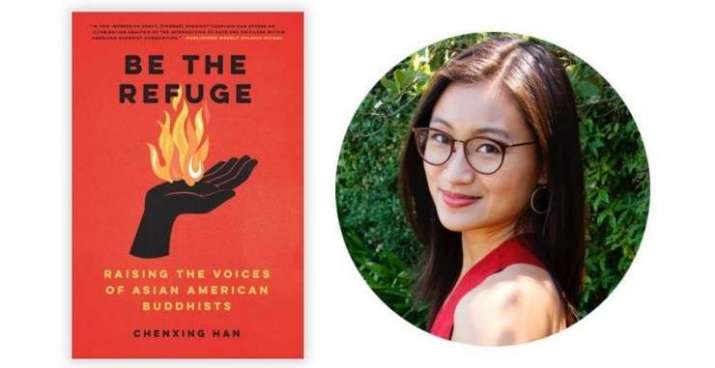NEWS
US-Based Research Finds that Gen Z Are Changing What Faith Looks Like

In an editorial for Religion News Service published last week, Dr. Josh Packard, Springtide Research Institute executive director, and Casper ter Kuile, co-founder of Sacred Design Lab, discuss the state of young people in America, concluding that while young people are losing faith in religious institutions, they still have an interest in spirituality
In their commentary, Packard and ter Kuile expand upon the findings of a recent study:
Given the decline in attendance at houses of worship and the so-called rise of nones, it might come as a surprise that the majority of young people say they are spiritual and/or religious. According to those who participated in Springtide Research Institute’s State of Religion and Young People 2020, 78% of people ages 13-25 consider themselves at least slightly spiritual, including 60% of unaffiliated young people (atheists, agnostics and nones). And 71% say they are at least slightly religious, including 38% of the unaffiliated. (Religion News Service)

Josh Packard, left, and Casper ter Kuile, right. From religionnews.com
The work leads to the conclusion that young people’s trust in religious institutions is on the decline, but this does not mean that they are not interested in spirituality. Instead, they are changing what faith looks like by exploring spiritual avenues outside of conventional formal religious structures.
Because of this shifting relationship with religion and spirituality, the Spring Tide Research Institute argues that the methods that are normally used to research people’s religious affiliations need to change to accurately capture reality. In a video titled “Young People and Religion,” Packard highlights the following:
You know, the inner and outer lives of Gen Z are complex. I mean the world they live in, it’s complicated. And the way that young people form bonds, make meaning, and live out their value is constantly changing. This is without a doubt the most diverse generation that has ever existed. So our data show that, you know, checking the boxes of affiliated/non-affiliated on a survey doesn’t even begin to tell the whole story about young people’s religious identities. It doesn’t tell us what we need to know about the things that young people long for and where they belong to. (YouTube)
Packard and ter Kuile write about a young American named Sam, noting: “At 18, Sam still identifies himself as a Catholic. But if it partly defines him, it doesn’t limit him.” As part of their research on Gen Z attitudes toward faith, Sam recently told them: “I regularly practice centering prayer and was involved in a centering prayer group, which wasn’t technically Catholic.” (Religion News Service)
“But through that, I discovered a lot of other kinds of inner spiritual traditions,” Sam continued. “I like to say, when you’re finding God in silence, it doesn’t really matter what you call God: It’s the same God. The Sufi tradition in Islam, I find, resonates with my experiences. Also, the contemplative tradition and different Indian practices of nonduality and mindfulness, Buddhism, all these things.” (Religion News Service)
In a separate research project, which culminated in the book Be the Refuge: Raising the Voices of Asian American Buddhists (North Atlantic Books 2021), author Chenxing Han highlighted the fact that, due to methodology deficiencies, researchers falsely concluded that people of Asian heritage were a minority in American Buddhism, and that white Buddhists made up the majority at 53 per cent—which could not be further from the truth.
 Be the Refuge book cover and author Chenxing Han. From auntlute.com
Be the Refuge book cover and author Chenxing Han. From auntlute.comHan writes:
In a 2012 survey on the religious life of Asian Americans, Pew Forum researchers realized that methodological limitations of the 2008 study had caused them to significantly underestimate the proportion of Asian American Buddhists. The revised findings? Of the estimated 1.0-1.3 percent of the U.S. adult population who say they are Buddhists, 67-69 percent are Asian American. (Han 2021, 8)
Many of Han’s young interviewees shed light on how this may have happened. For example, Zoe and Alyssa observed that they may not have called themselves Buddhist in a survey, although they incorporate many aspects of Buddhism in their daily lives.
Vince, another interviewee, wondered how one would go about measuring religious activities that take place outside the temple, and highlighted that the Pew Forum’s research seemed to have been undertaken from a specifically Judeo-Christian stance. “I also hope the researchers realize that Buddhists and Hindus have in-home altars for devotional activities. How are they measuring those sorts of activities outside of the temples? Context matters.” (Han 2021, 155)
With the ever-growing significance of social media and online communities, as well as global crises such as the COVID-19 pandemic and climate change, it is inevitable that young people will continue to change the ways they relate to spirituality, the Springtide Research Institute argues. “The question is whether faith leaders will walk alongside them as they encounter the divine in new ways.” (Religion News Service)
Reference
Han, Chenxing. 2021. Be the Refuge: Raising the Voices of Asian American Buddhists. Berkeley, California: North Atlantic Books.
See more
Gen Z is keeping the faith. Just don’t expect to see them at worship (Religion News Service)
Young People and Religion (YouTube)
About Us (Springtide Research)
Related news reports from Buddhistdoor Global
North American Buddhists to Offer Memorial Ceremony for Asian American Ancestors on 4 May
Naropa University in Colorado Celebrates First Black Futures Month
Soka Gakkai President Calls for Support on Nuclear Disarmament and Youth Climate Action
7th TLKY Canada Foundation Conference Held at University of British Columbia on 4 November
China’s Latest Viral Sub-culture Dubbed “Buddhist Youth”














